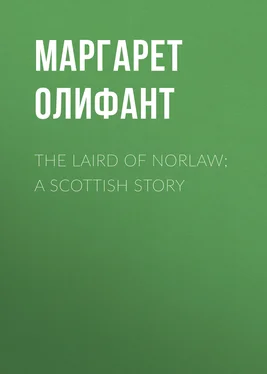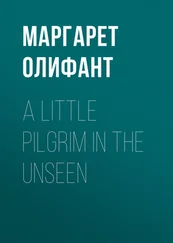Маргарет Олифант - The Laird of Norlaw; A Scottish Story
Здесь есть возможность читать онлайн «Маргарет Олифант - The Laird of Norlaw; A Scottish Story» — ознакомительный отрывок электронной книги совершенно бесплатно, а после прочтения отрывка купить полную версию. В некоторых случаях можно слушать аудио, скачать через торрент в формате fb2 и присутствует краткое содержание. Жанр: foreign_prose, literature_19, foreign_antique, на английском языке. Описание произведения, (предисловие) а так же отзывы посетителей доступны на портале библиотеки ЛибКат.
- Название:The Laird of Norlaw; A Scottish Story
- Автор:
- Жанр:
- Год:неизвестен
- ISBN:нет данных
- Рейтинг книги:3 / 5. Голосов: 1
-
Избранное:Добавить в избранное
- Отзывы:
-
Ваша оценка:
- 60
- 1
- 2
- 3
- 4
- 5
The Laird of Norlaw; A Scottish Story: краткое содержание, описание и аннотация
Предлагаем к чтению аннотацию, описание, краткое содержание или предисловие (зависит от того, что написал сам автор книги «The Laird of Norlaw; A Scottish Story»). Если вы не нашли необходимую информацию о книге — напишите в комментариях, мы постараемся отыскать её.
The Laird of Norlaw; A Scottish Story — читать онлайн ознакомительный отрывок
Ниже представлен текст книги, разбитый по страницам. Система сохранения места последней прочитанной страницы, позволяет с удобством читать онлайн бесплатно книгу «The Laird of Norlaw; A Scottish Story», без необходимости каждый раз заново искать на чём Вы остановились. Поставьте закладку, и сможете в любой момент перейти на страницу, на которой закончили чтение.
Интервал:
Закладка:
“That’s just what I have to find out,” said Huntley, with spirit; “a man may be clear he’s to do a thing, without seeing how at the moment. With your consent, I’m going to Australia, mother; if there’s any thing over, when all our affairs are settled, I’ll get my share—and as for the sheep and the land, they’re in Providence; but I doubt them as little as if they were on the lea before my eyes. I’m no’ a man out of a town that knows nothing about it. I’m country bred and have been among beasts all my days. Do you think I’m feared! Though I’ve little to start with, mother, you’ll see me back rich enough to do credit to the name of Norlaw!”
His mother shook her head.
“It’s easy to make a fortune on a summer night at hame, before a lad’s twenty, or kens the world,” she said. “I’ve seen mony a stronger man than you, Huntley, come hame baith penniless and hopeless—and the like of such grand plans, they’re but trouble and sadness to me.”
Perhaps Huntley was discouraged by the words; at all events he made no reply—and the mind of his mother gradually expanded. She looked up from her knitting suddenly, with a rapid tender glance.
“Maybe I’m wrong,” said the Mistress; “there’s some will win and some will fail in spite of the haill world. The Lord take the care of my bairns! Who am I, that I should be able to guide you, three lads, coming to be men? Huntley, you’re the auldest, and you’re strong. I canna say stay at hame—I dinna see what to bid you do. You must take your ain will, and I’ll no’ oppose.”
If Huntley thanked his mother at all it was in very few words, for the politenesses were not cultivated among them, the feelings of this Scottish family lying somewhat deep, and expressing themselves otherwise than in common words; but the Mistress brushed her hand over her eyes hurriedly, with something like a restrained sob, intermitting for a single instant, and no longer, the rapid glitter of her “wires"—but you would scarcely have supposed that the heart of the mother was moved thus far, to hear the tone of her next words. She turned to her second son without looking at him.
“And where are you for, Patie Livingstone?” said the Mistress, with almost a sarcastic sharpness. “It should be India, or the North Pole to pleasure you.”
Patie was not emboldened by this address; it seemed, indeed, rather to discomfit the lad; not as a reproach, but as showing a greater expectation of his purposes than they warranted.
“You know what I aimed at long ago, mother,” he said, with hesitation. “It may be that we can ill afford a ’prentice time now—but I’m no’ above working while I learn. I can scramble up as well as Huntley. I’ll go either to Glasgow or to Liverpool, to one of the founderies there.”
“Folk dinna learn to be civil engineers in founderies,” said the Mistress; “they’re nothing better than smiths at the anvil. You wanted to build a light-house, Patie, when ye were a little bairn—but you’ll no’ learn there.”
“I’ll maybe learn better. There’s to be railroads soon, everywhere,” said Patie, with a little glow upon his face. “I’ll do what I can—if I’m only to be a smith, I’ll be a smith like a man, and learn my business. The light-house was a fancy; but I may learn what’s as good, and more profitable. There’s some railroads already, mother, and there’s more beginning every day.”
“My poor bairn!” said the Mistress, for the first time bestowing a glance of pity upon Patie—“if your fortune has to wait for its making till folk gang riding over a’ the roads on steam horses, like what’s written in the papers, I’ll never live to see it. There’s that man they ca’ Stephenson, he’s made something or other that’s a great wonder; but, laddie, you dinna think that roads like that can go far? They may have them up about London—and truly you might live to make another, I’ll no’ say—but I would rather build a tower to keep ships from being wrecked than make a road for folk to break their necks on, if it was me.”
“Folk that are born to break their necks will break them on any kind of road,” said Patie, with great gravity; “but I’ve read about it all, and I think a man only needs to know what he has to do, to thrive; and besides, mother, there’s more need for engines than upon railroads. It’s a business worth a man’s while.”
“Patie,” said the Mistress, solemnly, “I’ve given my consent to Huntley to gang thousands of miles away over the sea; but if you gang among thae engines, that are merciless and senseless, and can tear a living creature like a rag of claith—I’ve seen them, laddie, with my own e’en, clanging and clinking like the evil place itself—I’ll think it’s Patie that’s in the lion’s mouth, and no’ my eldest son.”
“Well, mother!” said Patie, sturdily—“if I were in the lion’s mouth, and yet had room to keep clear, would you be feared for me?”
This appeal took the Mistress entirely without preparation. She brushed her hands hastily over her eyes once more, and went on with her knitting. Then a long, hard-drawn breath, which was not a sigh, came from the mother’s breast; in the midst of her objections, her determination not to be satisfied, a certain unaccountable pride in the vigor, and strength, and resolution of her sons rose in the kindred spirit of their mother. She was not “feared"—neither for one nor the other of the bold youths by her side. Her own strong vitality went forth with them, with an indescribable swell of exhilaration—yet she was their mother, and a widow, and it wrung her heart to arrange quietly how they were to leave her and their home.
“And me?” said Cosmo, coming to his mother’s side.
He had no determination to announce—he came out of his thoughts, and his musings, and his earnest listening, to lay that white, long hand of his upon his mother’s arm. It was the touch which made the full cup run over. The widow leaned her head suddenly upon her boy’s shoulder, surprised into an outburst of tears and weakness, unusual and overpowering—and the other lads came close to this group, touched to the heart like their mother. They cried out among their tears that Cosmo must not go away—that he was too young—too tender! What they had not felt for themselves, they felt for him—there seemed something forlorn, pathetic, miserable, in the very thought of this boy going forth to meet the world and its troubles. This boy, the child of the house, the son who was like his father, the tenderest spirit of them all!
Yet Cosmo, who had no plans, and who was only sixteen, was rather indignant at this universal conclusion. He yielded at last, only because the tears were still in his mother’s eyes, and because they were all more persistent than he was—and sat down at a little distance, not sullen, but as near so as was possible to him, his cheek glowing with a suspicion that they thought him a child. But soon the conversation passed to other matters, which Cosmo could not resist. They began to speak of Melmar, their unprovoked enemy, and then the three lads looked at each other, taking resolution from that telegraphic conference; and Huntley, with the blood rising in his cheeks, for the first time asked his mother, in the name of them all, for that tale which her husband, on his death-bed, had deputed her to tell them, the story of the will which was in the mid-chamber, and that Mary who was Mary of Melmar evermore in the memory of Norlaw.
At the question the tears dried out of the Mistress’s eyes, an impatient color came to her face—and it was so hard to elicit this story from her aggrieved and unsympathetic mind, that it may be better for Mrs. Livingstone, in the estimation of other people, if we tell what she told in other words than hers.
Читать дальшеИнтервал:
Закладка:
Похожие книги на «The Laird of Norlaw; A Scottish Story»
Представляем Вашему вниманию похожие книги на «The Laird of Norlaw; A Scottish Story» списком для выбора. Мы отобрали схожую по названию и смыслу литературу в надежде предоставить читателям больше вариантов отыскать новые, интересные, ещё непрочитанные произведения.
Обсуждение, отзывы о книге «The Laird of Norlaw; A Scottish Story» и просто собственные мнения читателей. Оставьте ваши комментарии, напишите, что Вы думаете о произведении, его смысле или главных героях. Укажите что конкретно понравилось, а что нет, и почему Вы так считаете.












